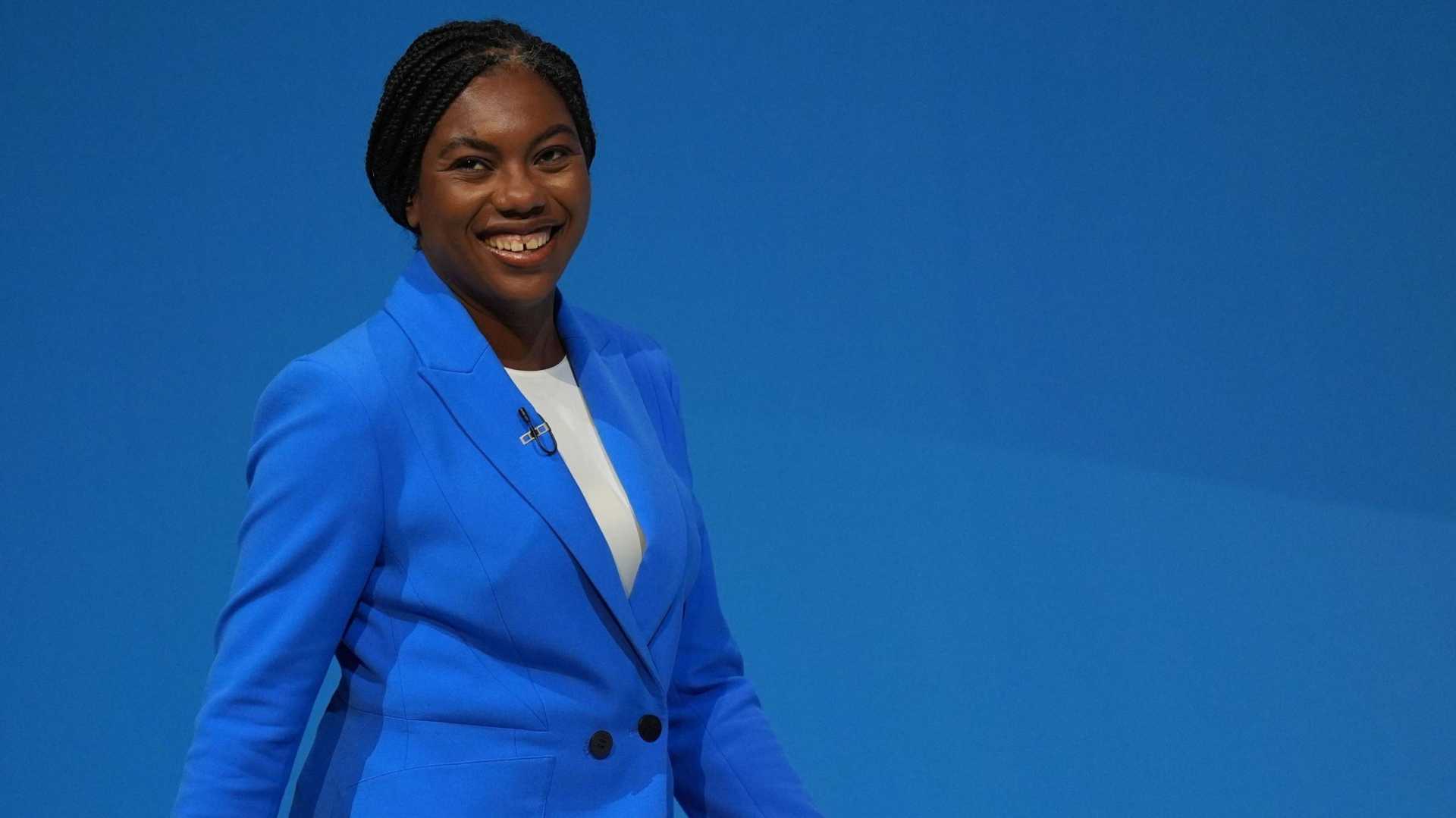Politics
Kemi Badenoch Elected as New Leader of UK’s Conservative Party, Vows to Realign Party with Conservative Values

Kemi Badenoch has been appointed as the new leader of the UK‘s Conservative Party, marking a significant shift in the party’s direction following its substantial electoral defeat in July. At 44 years old, Badenoch becomes the first Black woman to lead the party, succeeding Rishi Sunak who became the first nonwhite Prime Minister in 2022.
Badenoch’s rise to leadership is characterized by her dynamic and often confrontational approach. She narrowly won the leadership contest against former cabinet minister Robert Jenrick, securing 53,806 votes out of approximately 130,000 party members who participated. Her campaign, titled “Renewal 2030,” aims to return the Conservatives to power in the next election.
Badenoch’s background is marked by her journey from Nigeria to the UK at the age of 16, where she arrived with just £100 and supported herself by working at McDonald's while attending school. She later studied Computer Systems Engineering at the University of Sussex and worked in various roles within the IT and financial sectors before entering politics.
Known for her strong conservative views, Badenoch has been influenced by the late Prime Minister Margaret Thatcher, sharing her values of self-reliance and personal responsibility. She has been vocal on divisive issues such as transgender rights, Britain‘s colonial past, and ‘woke’ culture, criticizing what she sees as the erosion of conservative principles within her party.
As the new leader of the opposition, Badenoch faces significant challenges, including navigating the party’s recovery from a major electoral defeat. The Labour Party, led by Prime Minister Keir Starmer, holds a substantial majority in Parliament, which may limit Badenoch’s immediate impact. However, her supporters believe her charisma and confrontational style will make her a formidable opponent in political debates.
Badenoch’s next steps include forming a shadow cabinet to challenge the current Labour administration. Speculation is ongoing about key appointments, including the shadow chancellor and chief whip positions. Her ability to maintain party unity and present a coherent policy framework will be crucial in her new role.
Despite the uncertainty surrounding her ability to lead the Conservatives back to power, Badenoch’s leadership marks a new era for the party, one that is expected to be marked by vigorous debates and a renewed focus on conservative values.












